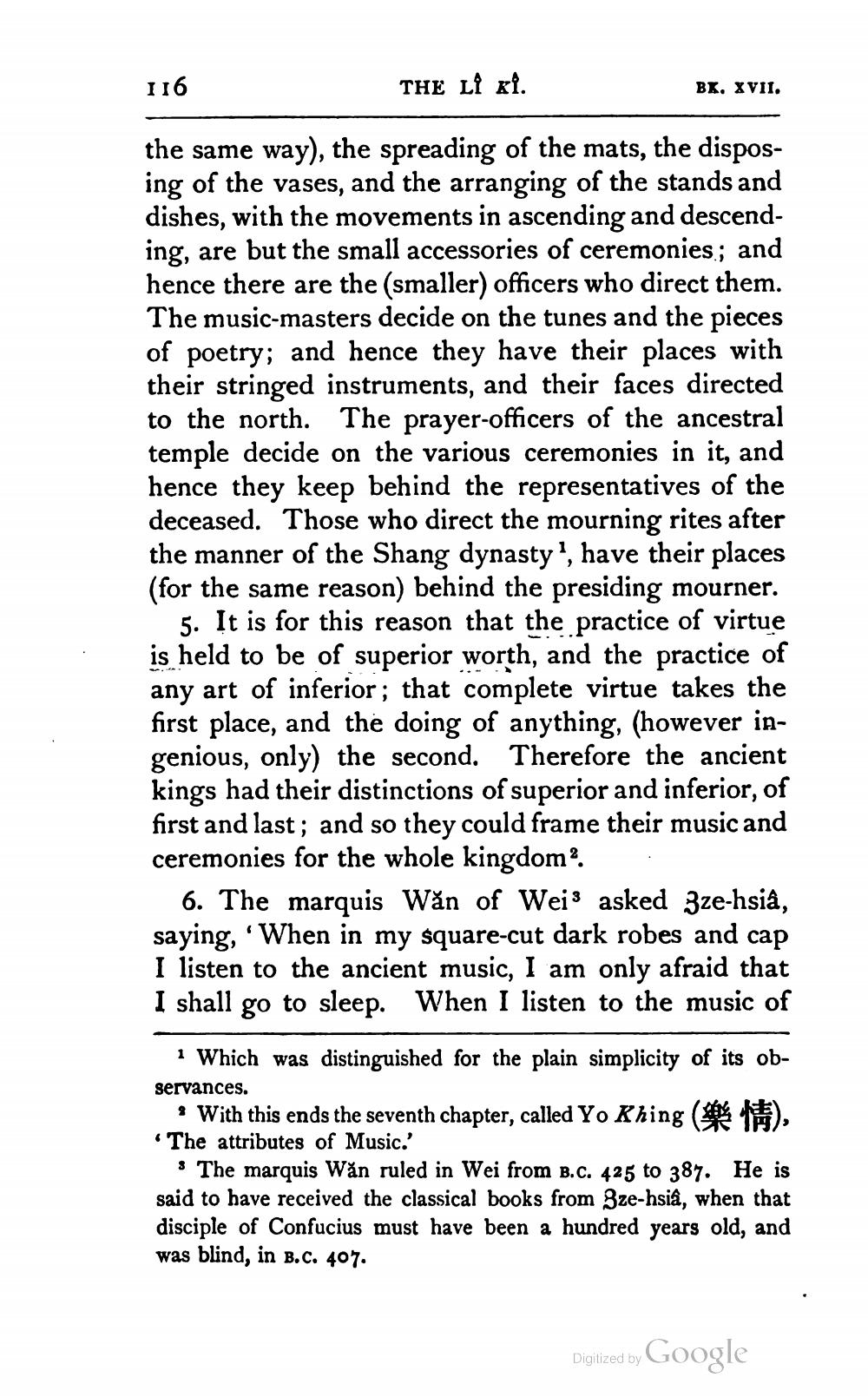________________
116
THE li xt.
BX, XVII.
the same way), the spreading of the mats, the disposing of the vases, and the arranging of the stands and dishes, with the movements in ascending and descending, are but the small accessories of ceremonies; and hence there are the smaller) officers who direct them. The music-masters decide on the tunes and the pieces of poetry; and hence they have their places with their stringed instruments, and their faces directed to the north. The prayer-officers of the ancestral temple decide on the various ceremonies in it, and hence they keep behind the representatives of the deceased. Those who direct the mourning rites after the manner of the Shang dynasty', have their places (for the same reason) behind the presiding mourner.
5. It is for this reason that the practice of virtue is held to be of superior worth, and the practice of any art of inferior; that complete virtue takes the first place, and the doing of anything, (however ingenious, only) the second. Therefore the ancient kings had their distinctions of superior and inferior, of first and last; and so they could frame their music and ceremonies for the whole kingdom. .
6. The marquis Wăn of Weis asked 3ze-hsiâ, saying, 'When in my square-cut dark robes and cap I listen to the ancient music, I am only afraid that I shall go to sleep. When I listen to the music of
1 Which was distinguished for the plain simplicity of its observances.
With this ends the seventh chapter, called Yo Khing in , . The attributes of Music.'
* The marquis Wăn ruled in Wei from B.C. 425 to 387. He is said to have received the classical books from 3ze-hsiâ, when that disciple of Confucius must have been a hundred years old, and was blind, in B.C. 407.
Digitized by Google




